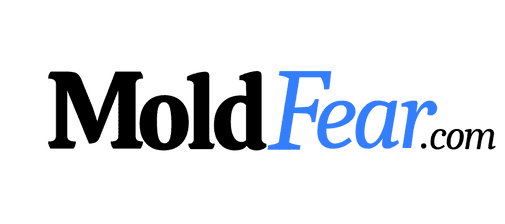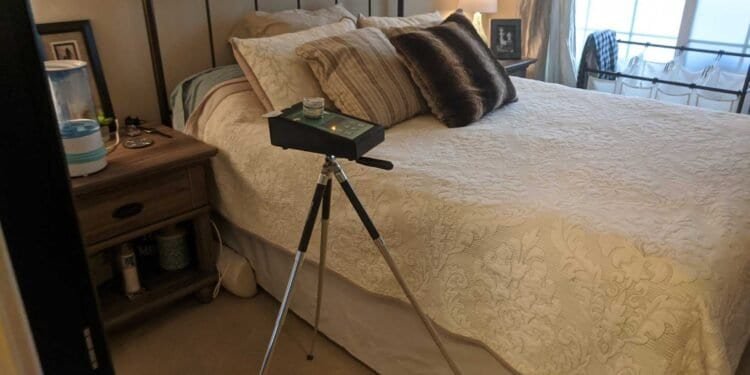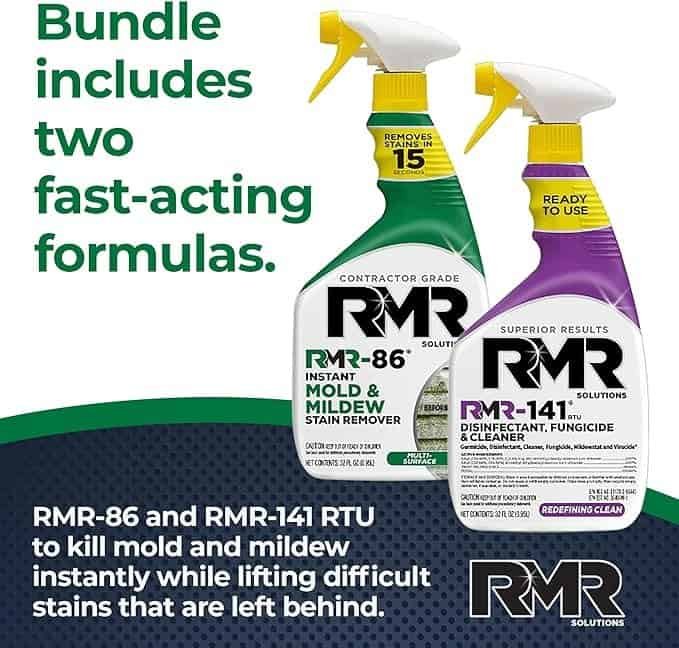Mold is a common problem in many homes, and it can cause serious health issues if not addressed in a timely manner. DIY mold testing kits are a popular option for homeowners who want to check for mold on their own. However, professional mold testing goes beyond what DIY kits can offer, providing more accurate results and a more comprehensive assessment of the problem.

Understanding the risks of mold is the first step in addressing the problem. Mold can cause a range of health issues, from allergies and respiratory problems to more serious conditions like asthma and lung infections. DIY mold testing kits can provide some basic information about the presence of mold in a home, but they may not be able to detect all types of mold or provide accurate information about the extent of the problem.
Professional mold testing provides a more in-depth assessment of the problem, using specialized equipment and techniques to identify the type and extent of mold growth. A professional mold inspector can also provide guidance on how to remediate the problem and prevent future growth. While DIY mold testing kits may seem like a more cost-effective option, professional mold testing can provide more accurate results and help ensure the health and safety of your home.
Key Takeaways
- Professional mold testing provides more accurate results and a more comprehensive assessment of the problem than DIY kits.
- Understanding the risks of mold is important in addressing the problem.
- Professional mold inspectors can provide guidance on how to remediate the problem and prevent future growth.
Understanding Mold and Its Risks

Mold is a type of fungus that grows in damp and humid environments. It reproduces by releasing spores into the air, which can easily spread and cause mold growth in other areas. Mold is a common problem in homes and buildings, and it can lead to a variety of health risks if left untreated.
One of the most significant health risks associated with mold is allergies. Mold spores can trigger allergic reactions in some people, causing symptoms such as sneezing, runny nose, and itchy eyes. In severe cases, mold allergies can lead to asthma attacks and other respiratory problems.
In addition to allergies, mold can also cause skin irritation. Contact with mold can lead to rashes, hives, and other skin problems. People with weakened immune systems, such as those undergoing chemotherapy or with HIV/AIDS, are at a higher risk of developing skin infections from mold exposure.
Mold can also cause respiratory problems, especially in people with pre-existing lung conditions such as chronic obstructive pulmonary disease (COPD) or asthma. Exposure to mold can exacerbate these conditions, leading to coughing, wheezing, and difficulty breathing.
DIY mold testing kits are available, but they have significant limitations. They may not provide accurate results, and they cannot assess hidden areas of a building. Professional mold testing goes beyond what DIY kits can offer by providing expertise, specialized equipment, and the ability to assess hidden areas. Professional inspectors can provide more accurate results, which can help identify the type and severity of mold present in a building. This information is crucial in determining the appropriate course of action for mold remediation.
In summary, mold is a common problem in homes and buildings that can lead to a variety of health risks if left untreated. mold allergies, skin irritation, and respiratory problems are some of the most significant health risks associated with mold exposure. DIY mold testing kits have significant limitations and may not provide accurate results. Professional mold testing goes beyond what DIY kits can offer, providing more accurate results and identifying the appropriate course of action for mold remediation.
DIY Mold Testing Kits Explained
DIY mold testing kits are a convenient and affordable way to test for mold in a home or office. These kits typically come with instructions and materials to collect samples of mold, which are then sent to a lab for analysis. While DIY kits can be useful for identifying the presence of mold, they have limitations that can lead to false negatives or false positives.
One of the main limitations of DIY mold testing kits is their limited scope. These kits are designed to test for mold in specific areas, such as the air or surfaces. They may not be able to identify mold in hidden or hard-to-reach areas, such as inside walls or under floors. This can lead to false negatives, where mold is present but not detected by the kit.
Another limitation of DIY mold testing kits is the potential for false positives. These kits may detect mold spores that are not actually harmful or indicative of a mold problem. This can lead to unnecessary remediation efforts and expenses.
Despite these limitations, DIY mold testing kits can be a useful tool for identifying the presence of mold in a home or office. They are convenient and affordable, and can provide a basic indication of mold levels. However, for a more comprehensive and accurate assessment of mold, it is recommended to seek the services of a professional mold inspector.
Overall, DIY mold testing kits can be a useful starting point for identifying mold in a home or office. However, they should not be relied upon as the sole method of testing for mold. It is important to understand their limitations and seek professional assistance when necessary.
Professional Mold Testing: An Overview
Professional mold testing is a comprehensive service that goes beyond what DIY kits can offer. A certified mold inspector brings expertise, specialized equipment, and techniques to assess hidden areas and provide reliable results. The experience of a professional mold inspector is invaluable in identifying the type of mold and its potential health risks.
Unlike DIY kits, professional mold testing is a multi-step process that involves visual inspection, air sampling, surface sampling, and moisture testing. A certified inspector will conduct a thorough visual inspection of the property to identify any signs of mold growth, water damage, and moisture problems.
During air sampling, the inspector will use specialized equipment to collect air samples from different areas of the property. The samples are then sent to a certified laboratory for analysis. Surface sampling involves collecting samples from visible mold growth or suspected areas of mold growth.
Moisture testing is an essential part of professional mold testing. A certified inspector will use specialized equipment to measure the moisture content of various materials in the property, such as walls, floors, and ceilings. Moisture testing helps identify the source of the moisture problem and prevents future mold growth.
Overall, professional mold testing is a reliable and comprehensive service that provides accurate results. It is important to hire a certified mold inspector who has the experience, expertise, and specialized equipment to conduct a thorough inspection and provide reliable results.
The Importance of Accurate Mold Identification

Accurate mold identification is crucial for determining the appropriate remediation procedures and ensuring the health and safety of occupants. Professional mold testing goes beyond what DIY kits can offer in terms of accuracy and reliable results.
DIY kits may provide limited accuracy when it comes to mold identification. According to Safe Home®, DIY kits may need more precision and accuracy of professional inspections. They can yield false negatives or positives, leading to unreliable results. On the other hand, professional mold testing services use advanced equipment and techniques to accurately identify the type of mold present in a property.
There are different types of mold that can grow in a property, and each type requires a specific remediation approach. For example, black mold is one of the most dangerous types of mold and requires immediate attention. Professional mold testing services can identify the type of mold present and provide a customized remediation plan.
Professional mold testing services use different methods for mold identification, including air sampling, surface sampling, tape, swabs, and petri dishes. Air sampling is used to determine the concentration of mold spores in the air, while surface sampling is used to collect mold spores from surfaces. Tape and swabs are used to collect samples from hard-to-reach areas, while petri dishes are used for air and surface sampling.
In conclusion, accurate mold identification is essential for determining the appropriate remediation procedures and ensuring the health and safety of occupants. Professional mold testing services go beyond what DIY kits can offer in terms of accuracy and reliable results. By using advanced equipment and techniques, professional mold testing services can accurately identify the type of mold present and provide a customized remediation plan.
Advantages of Hiring a Professional Mold Inspector

When it comes to mold inspection, hiring a professional mold inspector has many advantages over using a DIY mold testing kit. A mold inspector goes beyond just identifying the presence of mold. They provide a comprehensive report that includes the type of mold, its concentration, and the areas affected.
One of the main advantages of hiring a professional mold inspector is their experience. Professional mold inspectors have the knowledge and expertise to identify the root cause of the mold growth and recommend a protocol for remediation. They can also provide recommendations on how to prevent future mold growth.
Another advantage of hiring a professional mold inspector is their precision. Professional mold inspectors use specialized equipment to detect mold that may not be visible to the naked eye. This allows them to provide a more accurate and reliable report.
A detailed report is another advantage of hiring a professional mold inspector. The report will include not only the type and concentration of mold but also the potential health concerns associated with the mold. This can help homeowners and business owners take the necessary steps to protect their health and safety.
Safety is another important factor to consider when it comes to mold inspection. Professional mold inspectors have the necessary equipment and training to safely handle mold. They can also provide recommendations on how to safely remove the mold.
In summary, hiring a professional mold inspector has many advantages over using a DIY mold testing kit. Professional mold inspectors have the experience, precision, and knowledge to provide a reliable and detailed report that includes recommendations for remediation and prevention. They can also provide guidance on how to safely handle mold to protect your health and safety.
Comparing Costs: DIY Kits vs. Professional Testing

One of the primary concerns for homeowners when it comes to mold testing is the cost. DIY mold test kits are often marketed as a cost-effective solution, but how do they compare to professional testing in terms of affordability?
DIY mold test kits are generally less expensive than professional testing. The cost of a DIY kit can range from $10 to $50, depending on the brand and the number of samples included. However, it’s important to note that the cost of a kit doesn’t necessarily reflect its accuracy. False negatives and false positives are common with home mold tests, which can lead to additional costs down the line if mold is left untreated.
Professional mold testing, on the other hand, can be more expensive. The cost of a professional mold inspection can range from $300 to $1,000, depending on the size of the property and the number of samples taken. However, professional inspectors bring expertise, specialized equipment, and the ability to assess hidden areas, providing a more accurate assessment of mold levels in the home.
When considering the cost of mold testing, it’s important to weigh the potential risks and benefits. DIY kits may be a more affordable option for those on a tight budget, but they may not provide the level of accuracy and expertise that professional testing can offer. Homeowners should also consider the potential costs of untreated mold, including property damage, health risks, and decreased home value.
In summary, while DIY mold test kits may be a more cost-effective option upfront, professional testing can provide a more accurate assessment of mold levels in the home. Homeowners should weigh the potential risks and benefits of each option when considering their budget constraints and affordability.
The Role of Equipment in Mold Detection
Professional mold testing goes beyond what DIY kits can offer, and one of the key differences is the equipment used. Certified mold inspectors use specialized equipment to detect mold in hard-to-reach areas, damp and humid conditions, and other places that may be missed by DIY kits.
One of the most important pieces of equipment used in professional mold testing is moisture meters. Moisture meters help inspectors identify areas with high levels of moisture, which can be a breeding ground for mold. By identifying these areas, inspectors can take steps to prevent mold growth before it becomes a problem.
Another important piece of equipment used in professional mold testing is air sampling equipment. Air sampling equipment allows inspectors to collect air samples from various parts of a building and test them for mold spores. This can help identify areas where mold is present but not visible, such as behind walls or under carpets.
Surface testing is another important part of professional mold testing. Inspectors use specialized equipment to take samples from surfaces such as walls, floors, and ceilings. These samples are then sent to a laboratory for testing to determine the type and amount of mold present.
In addition to these standard pieces of equipment, certified mold inspectors also use specialized equipment to detect mold in hard-to-reach areas. For example, fiber optic scopes can be used to inspect areas behind walls or under floors.
Overall, the role of equipment in mold detection is critical to the success of professional mold testing. By using specialized equipment, certified mold inspectors can detect mold in areas that may be missed by DIY kits and take steps to prevent mold growth before it becomes a problem.
Addressing Mold Remediation and Prevention
When it comes to mold remediation, it’s important to address the problem as soon as possible. Mold growth can cause structural damage to a property, and it can also lead to health problems for those who are exposed to it. Professional mold testing goes beyond what DIY kits can offer by providing a comprehensive assessment of the mold problem.
Mold remediation involves the removal of mold and the prevention of its regrowth. Professional mold removal companies use specialized equipment and techniques to ensure that the mold is completely removed from the affected area. They also address the underlying moisture problems that caused the mold growth in the first place.
Mold prevention is also an important aspect of addressing mold issues. It’s important to identify and address moisture problems, such as leaks or flooding, as soon as possible to prevent mold growth. Regular inspections can also help identify any potential mold problems before they become a major issue.
Ignoring a mold problem can lead to costly repairs down the line. Mold can cause serious damage to a property’s structural integrity, and it can also lead to health problems for those who are exposed to it. It’s important to address mold issues as soon as they are identified to prevent further property damage and health risks.
In conclusion, professional mold testing goes beyond what DIY kits can offer by providing a comprehensive assessment of the mold problem. mold remediation and prevention are important aspects of addressing mold issues, and it’s important to address any potential mold problems as soon as possible to prevent further property damage and health risks.
Frequently Asked Questions
What are the limitations of at-home mold test kits compared to professional testing?
At-home mold test kits provide a basic indication of mold presence in a home, but they have limitations. They cannot identify the specific type of mold present, and they may not detect mold in hidden areas. Professional mold testing, on the other hand, uses specialized equipment and expertise to identify the type and extent of mold growth in a home.
How do professional mold inspectors ensure the accuracy of their results?
Professional mold inspectors follow industry standards and guidelines for collecting and analyzing mold samples. They use specialized equipment and techniques to collect samples from various areas of a home, including hidden areas. These samples are then analyzed in a laboratory to identify the type and extent of mold growth.
What additional information can professional mold testing provide that DIY kits cannot?
Professional mold testing can provide a comprehensive analysis of the mold problem in a home, including the type and extent of mold growth, potential health risks, and recommended remediation steps. They can also identify the source of the mold growth and provide advice on how to prevent future mold growth.
Can professional mold testing identify the specific type of mold present in a home?
Yes, professional mold testing can identify the specific type of mold present in a home. This information is important because different types of mold have different health risks and require different remediation methods.
What are the benefits of hiring a professional for mold testing over using a DIY kit?
Hiring a professional for mold testing offers several benefits over using a DIY kit. Professional mold inspectors have the expertise and equipment to identify the type and extent of mold growth in a home, as well as potential health risks. They can also provide a comprehensive analysis of the mold problem and recommend appropriate remediation steps.
How does professional mold testing address potential health concerns that home kits might overlook?
Professional mold testing can identify potential health risks associated with mold growth, including respiratory problems, allergies, and other health issues. They can also provide advice on how to reduce exposure to mold and prevent future mold growth.














